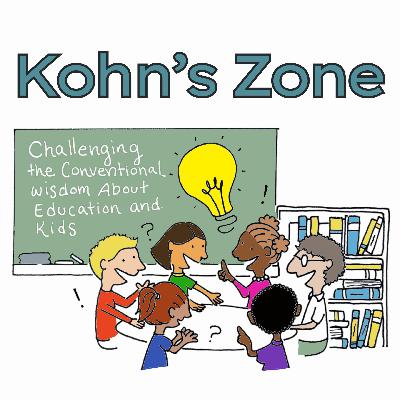It’s Not Just You
Description
November 15, 2025
It’s Not Just You
The most popular initiatives in education tend to be strategies for “fixing the kids.” A focus on the deficits of individual students, rather than a critical analysis of systemic issues, is the common denominator of academic remediation, behavior management programs, and efforts to equip children with more self-regulation, grit, or a “growth mindset.” Yet the entire field of social psychology warns us that we err in underestimating the impact of the environments in which people, including students, find themselves. Alas, this message has become muddled because some classic social psych research is widely misunderstood, including Milgram’s obedience experiments and Mischel’s marshmallow studies. So let’s explore what psychologists call the Fundamental Attribution Error — and consider how the individualistic underpinnings of our education system (and of our culture more generally) prevent us from taking that insight to heart.
RESOURCES:
Lee Ross, “The Intuitive Psychologist and His Shortcomings: Distortions in the Attribution Process,” Advances in Experimental Social Psychology 10 (1977): 173-220 [https://tinyurl.com/3d9xdjtd]
Muzafer Sherif et al., The Robbers Cave Experiment (Wesleyan Univ. Press, 1961/1988) [https://www.weslpress.org/9780819561947/the-robbers-cave-experiment/]
Stanley Milgram, Obedience to Authority (Harper, 1974/2009) [https://www.harpercollins.com/products/obedience-to-authority-stanley-milgram]
Philip Zimbardo’s prison experiment: See prisonexp.org.
Walter Mischel’s marshmallow experiments: Alfie Kohn, “S’More Misrepresentation of Research: What Waiting for a Second Marshmallow Doesn’t Prove,” Education Week, September 10, 2014 [https://www.alfiekohn.org/article/smore-misrepresentation-research/]; Walter Mischel, “From Good Intentions to Willpower,” in The Psychology of Action, ed. P. M. Gollwitzer and J. A. Bargh (Guilford, 1996); Mischel et al., “Cognitive and Attentional Mechanisms in Delay of Gratification,” Journal of Personality and Social Psychology 21 (1972): 204-18.
Alfie Kohn, “How Not to Teach Values: A Critical Look at Character Education,” Phi Delta Kappan, February 1997 [https://www.alfiekohn.org/article/teach-values/]
Ruth Butler, “What Young People Want to Know When: Effects of Mastery and Ability Goals on Interest in Different Kinds of Social Comparisons,” Journal of Personality and Social Psychology 62 (1992): 934-43.
Nona M. Flynn and Judith L. Rapoport, “Hyperactivity in Open and Traditional Classroom Environments,” Journal of Special Education 10 (1976): 285-90; Rolf G. Jacob et al., “Formal and Informal Classroom Settings: Effects on Hyperactivity,” Journal of Abnormal Child Psychology 6 (1978): 47-59.
A note from Alfie Kohn:
My sincere thanks to the listeners who have taken a minute to click on the DONATE link (or to visit coff.ee/kohnszone) and helped to cover our production costs, thereby keeping the podcast ad- and paywall-free. If you are not yet one of the listeners who has done this, it’s not too late. It will also not be too late tomorrow, but doing so right now would be even better.
Also, if you enjoy the podcast, please tell other people about it. And if you have feedback about the episode you’ve just listened to, send it to https://www.alfiekohn.org/contact-us/.
Please click the button below to donate.
If you don’t see a button, please go to this page (https://coff.ee/kohnszone).
PRODUCTION SUPPORT: Ultraviolet Audio
ART: Abi Kohn









